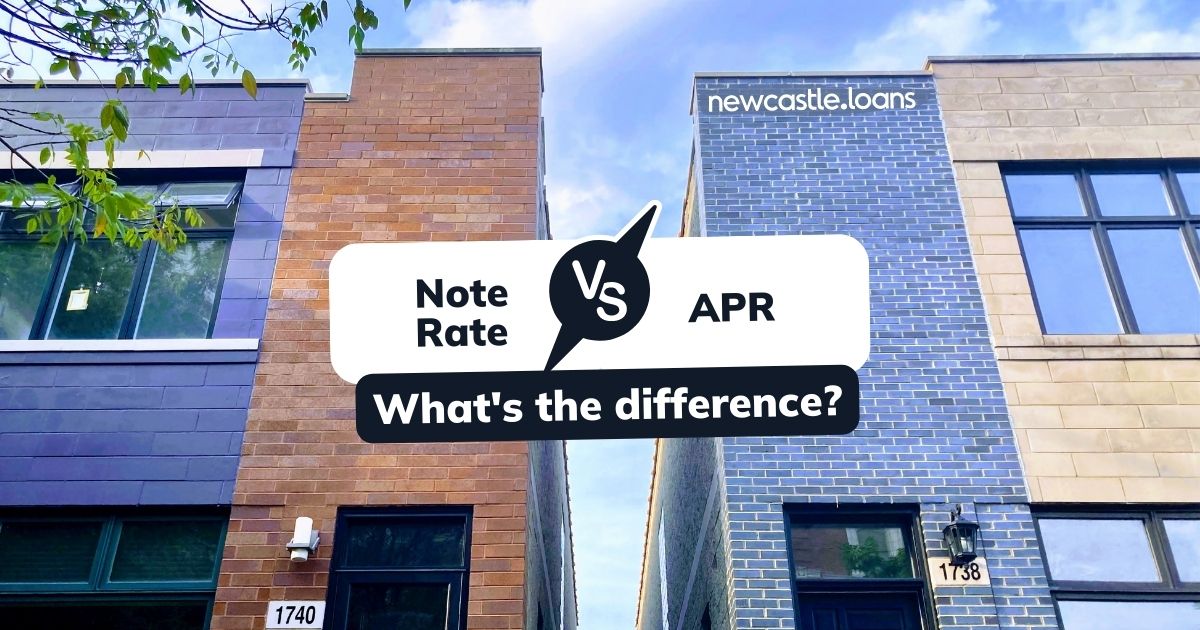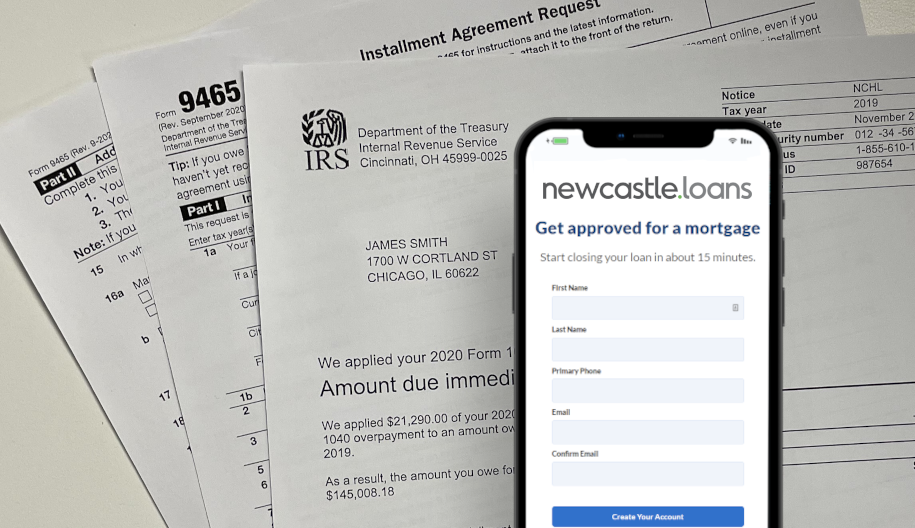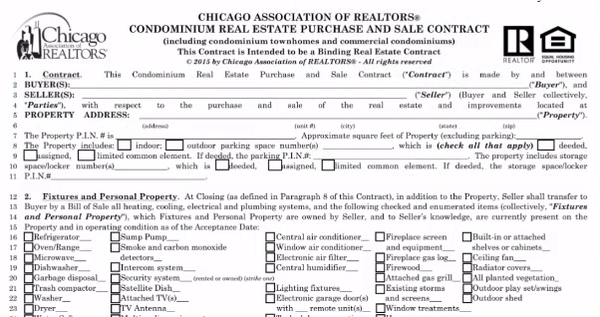Mortgage Guide
All the information you need to buy a home.
Featured tools

Real Estate Transfer Tax Calculator | Chicago metro area
Real estate transfer taxes are fees that the state, counties, and local municipalities charge buyers and sellers when transferring property ownership. Use our real estate transfer..

Debt-to-Income ratio | What is a good DTI for a mortgage?
A mortgage debt-to-income (DTI) ratio is a measure that compares your debt to the income you receive. Mortgage lenders use it to determine how much you can afford to pay for a..

Seller Credit | Can the seller pay the homebuyer's closing costs?
Sellers can pay the buyer's closing costs. A seller credit is a sum of money the property seller agrees to give the homebuyer at closing. The buyer can use the credit to pay..

Mortgage Rate Lock | How do rate locks work?
Interest rates fluctuate. A mortgage rate lock freezes your interest rate for a set time, protecting you if it rises. As a result, you know how much your loan will cost before..

Down Payment | How much is a down payment on a house?
Most first-time homebuyers need a down payment of at least 3% of the property's purchase price.

FHA Self-Sufficiency Calculator | 3-4 unit properties
An FHA loan is a good option for financing the purchase of a multi-unit property. However, 3-4 unit properties must be self-sufficient, which means they must have a positive cash..

How to calculate future rental income from a departing residence
With careful planning, you can use the future rental income you'll collect from your departing residence to get approved for a mortgage to buy a new home. I'll explain how in this..

2-to-4-Unit Home | How to buy a multi-unit property
Multi-family, 2-to-4-unit homes are affordable and surprisingly easy to buy.

How future rental income can help you buy an investment property
When buying an investment property, you can use a portion of the future rental income to help you get approved for the mortgage. However, only some real estate investors can use..

VA loan | What is the VA funding fee for 2024?
In this article, I'll explain the VA funding fee, its cost, who pays it, and who is exempt. Then, I'll give you a few examples so you know what to expect when buying a home with a..

VA loan | How to read the VA Certificate of Eligibility (COE)
In this article, I’ll show you how to read and understand the Certificate of Eligibility (COE) quickly. This information will help you determine whether you’re eligible for a VA..

VA loan | What is the credit score? [580]
This article outlines VA loan requirements for credit score, bankruptcy, short sale, judgment, and foreclosure.

FHA Mortgage Insurance | How much is it? Can you cancel it?
All Federal Housing Administration (FHA) loans require mortgage insurance. Homebuyers pay two types of mortgage insurance when purchasing a home using an FHA loan. First, you pay..

Can the real estate agent also be the loan officer?
You can simultaneously hold licenses as a real estate agent and a mortgage loan officer in Illinois. Under certain conditions, you can also serve as the agent and the loan officer..

Can a non-permanent resident get a mortgage?
A non-permanent resident of the U.S. can get approved for a mortgage to buy a home. However, the process may have additional requirements compared to U.S. citizens. In this..

How to Get a DACA Mortgage Loan
Getting a loan to buy a home is easier than you think for people in the Deferred Action for Childhood Arrivals (DACA) program. In this article, I'll outline the mortgage process..

How to get a mortgage with pending asylum status
In this article, I'll explain how to get approved for a mortgage to buy a home while waiting for the United States Citizenship and Immigration Services (USCIS) to decide on your..

How a mortgage credit check affects your score
Multiple inquiries from mortgage companies within 45 days are grouped and counted as a single inquiry, which minimizes the impact on your credit score. In this article, I'll show..

Principal residence, second home, or investment property?
"Occupancy" refers to how you will use the property you plan to buy. Will it be your principal residence, second home, or investment property? Whether or not you will live there..

Mortgage Discount Points | Calculator
Paying mortgage discount points is a way to lower your interest rate. You pay a lump sum at closing in exchange for a lower interest rate on your home loan. Points allow you to..

Can I pay mortgage closing costs with a credit card?
You can use your credit card to pay some of your closing costs when buying a home. But there are limits. I'll give you the details in this article.

How to buy a condo with an FHA loan
Buying a condo with an FHA loan can be tricky. The condo must be FHA-approved. But unfortunately, there are few. The chances of finding one in the neighborhood where you want to..

How to buy a mixed-use property with an FHA loan
Home buyers can use an FHA loan to buy a mixed-use, multi-unit property with a down payment of only 3.5% of the property's purchase price. FHA's low down payment option and..

Earnest Money | How it works when buying a home
Earnest money shows sellers you're interested in buying their house. It's a small amount, like 1% to 3% of the house price, that you deposit upfront when offering to buy the..

Mortgage Contingency | How it works when buying a home
In this article, I'll explain the mortgage contingency, show you where to find it in a real estate contract, and tell you why you need to know about it when buying a house. First,..

Mortgage Insurance | How much is PMI?
The cost of private mortgage insurance (PMI) varies depending on several factors, including the lender. Some lenders charge more than others for the same PMI. In this article,..

Can you get a mortgage if you're already a co-signer?
As a co-signer, you've committed to another person's financial obligation to the loan. You probably co-signed a car loan, student loan, or mortgage to help out a friend or..

What does PITI mean? PITI mortgage calculator
PITI stands for Principal, Interest, Taxes, and Insurance. The term refers to the components of your monthly housing expense.

How a mortgage co-signer can help you buy a home
When your income, savings, or credit history falls short, adding a co-signer to your application can give you the boost you need to get approved for a mortgage. In this article,..

How to get a mortgage working in the cannabis industry
Getting a mortgage and buying a home while working for a state-legalized marijuana business can be challenging due to the legal issues surrounding the cannabis industry.

Homeowners Insurance | How much do you need for a mortgage?
When buying a home, you must purchase a homeowner's insurance policy that meets the lender's requirements. Homeowner's insurance protects you and the lender in an accident or..
What is an FHA 203k loan?
An FHA 203k loan is a type of mortgage designed to help homebuyers purchase a property and finance the cost of renovations or repairs into a single mortgage.

Gift Letter | How to use a gift to buy a home
In this article, I'll show you the best way to prove that your gift is from an acceptable donor so that everything goes smoothly with your home purchase. You can download the gift..

How much are prepaid items & mortgage escrow?
Prepaid items are homeowner’s insurance, mortgage interest, and property taxes you pay at closing when you buy a home. In this article, I'll explain how to estimate the money..

Why a verified mortgage pre-approval is better
In this article, I explain how a verified pre-approval letter improves your chances of getting the home you want.

When should you get pre-approved for a mortgage?
Getting pre-approved for a mortgage is generally a good idea before you start looking for a real estate agent or viewing homes to buy.

Cash-out refinance | Consolidate credit card debt
In this article, I'll show you how you can take control of your finances by consolidating high-interest credit card debt with a cash-out mortgage refinance.

VA loan | VA cash-out refinance
The VA cash-out refinance loan gives veterans access to 100% of their home equity. With this mortgage program, you can replace your current conventional or VA loan with a new VA..

Loan-to-Value | How to calculate LTV for a mortgage
Loan-to-value (LTV) ratio is a measure that compares the amount of the mortgage loan to the value of the property. Lenders use it to determine the risk of lending you money for a..

What's the difference between mortgage interest rate and APR?
Because the APR represents the overall cost of your mortgage, it should make it easier for you to compare loan offers to find the best deal on your mortgage. However, APR can vary..

Notice of Intent to Proceed
The mortgage lender must honor the terms of the Loan Estimate for ten days. If you wait more than ten days after receiving a Loan Estimate to give your intent to proceed, the..

Loan Purpose | How loan purpose affects your mortgage rate
When applying for a mortgage, the first question on the mortgage application is, "what is the loan's purpose?" You have two options, purchase or refinance. I'll explain how the..

Can you get a mortgage if you work through a staffing agency?
If you work for a staffing agency, you might need help buying a house. Most banks won't use your staffing agency income to approve your mortgage. And, unfortunately, without a..

Can you get a mortgage if you owe federal tax debt to the IRS?
Owing federal tax debt makes it harder to get approved for a mortgage, but it’s not impossible to get a home loan with this debt factored in. With careful planning, you can still..
© 2024 NewCastle Home Loans, LLC. All rights reserved.
Lending in Florida, Illinois, Indiana, and Tennessee.


/aa-Frank/LEexGif.gif)

/aa-Frank/mortgagepaymentcalc(1).gif)
/aa-Frank/self_suff_fha_gif.gif)
/aa-Frank/discountpointcalc_gif.gif)
/transfertaxcalc(1).gif)
/maxsellercredt(1).gif)